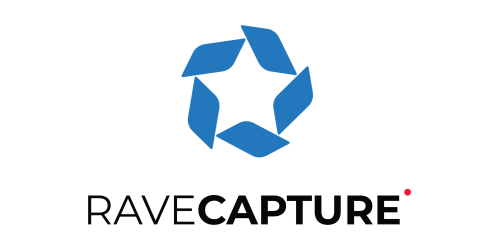Choosing between traditional SSL Certificate purchasing and Trustico® Certificate as a Service (CaaS) depends on your technical requirements, infrastructure setup, and management preferences.
Both approaches provide the same level of encryption and security, but they differ significantly in management complexity, pricing models, and operational requirements.
This comparison helps you understand which option best fits your specific needs and technical capabilities.
Traditional SSL Certificate Model
Traditional SSL Certificate purchasing involves manually ordering individual SSL Certificates through our web interface or API. Each SSL Certificate requires separate validation, approval processes, and manual installation on your servers.
With traditional SSL Certificates, you pay per certificate for specific validity periods, typically one to three years.
Each SSL Certificate secures specific domains or domain combinations, and adding domains requires purchasing additional SSL Certificates or upgrading to multi-domain options.
Traditional SSL Certificates require manual renewal processes, including reordering, revalidation, and reinstallation before expiration. This model provides complete control over each SSL Certificate but requires ongoing administrative attention to prevent expiration.
Traditional SSL Certificates work with any web server or application that supports SSL/TLS, regardless of ACME protocol support. They're delivered in standard formats compatible with all server software and hosting environments.
Trustico® Certificate as a Service (CaaS) Model
Trustico® Certificate as a Service (CaaS) provides automated SSL Certificate management through ACME clients, eliminating manual ordering, validation, and renewal processes. Generally you'll pay per domain annually and receive unlimited SSL Certificates for that domain with complete automation.
The service-based model uses ACME protocol automation to handle domain validation, SSL Certificate issuance, and installation automatically. Your ACME client manages the entire SSL Certificate lifecycle without manual intervention.
SSL Certificates install automatically as per industry requirements, ensuring continuous protection without expiration risks. For the period purchased the automation eliminates renewal reminders, manual processes, and the administrative overhead of traditional SSL Certificate management.
It's recommended to exclude the www part of the domain during our ordering process as we will include it free of charge as an associated Fully Qualified Domain Name (FQDN) during the activation process.
Trustico® Certificate as a Service (CaaS) requires ACME client software and basic technical setup but provides unlimited SSL Certificates per domain once configured. This model scales efficiently for multiple servers, environments, and complex infrastructures.
Cost Comparison
Traditional SSL Certificates typically cost more per domain annually, especially when factoring in multi-year purchases and the administrative time required for management. Costs increase significantly when securing multiple servers or environments for the same domain.
Each traditional SSL Certificate represents a separate purchase, making it expensive to secure development, staging, and production environments. Multi-domain SSL Certificates add costs for each additional domain or subdomain.
Trustico® Certificate as a Service (CaaS) provides predictable annual pricing per domain with unlimited SSL Certificates included. This model becomes increasingly cost-effective as you secure more servers, environments, or require frequent SSL Certificate reissuance.
The service model eliminates hidden costs like emergency renewal fees, rush processing charges, or additional SSL Certificates for testing environments. You know exactly what you'll pay annually for each domain's complete SSL Certificate needs.
Management Complexity
Traditional SSL Certificate management requires tracking expiration dates, coordinating renewal processes, and manually installing SSL Certificates across multiple servers. This complexity increases with the number of domains and servers you manage.
Each traditional SSL Certificate renewal involves multiple steps: reordering, domain validation, approval processing, downloading, and installation. Missing any step can result in SSL Certificate expiration and website downtime.
Trustico® Certificate as a Service (CaaS) reduces management complexity to initial ACME client setup and occasional monitoring. Once configured, the system handles all SSL Certificate operations automatically without ongoing administrative tasks.
The automated model eliminates renewal calendars, expiration tracking, and manual installation processes for paid active services. Your primary management task becomes monitoring ACME client health rather than managing individual SSL Certificates.
Technical Requirements
Traditional SSL Certificates work with any server or hosting environment that supports SSL/TLS, regardless of automation capabilities. They require no special software beyond standard web server SSL Certificate installation procedures.
Traditional SSL Certificates are ideal for environments where ACME protocol support is unavailable, restricted, or incompatible with existing infrastructure. They work with legacy systems, managed hosting, and restricted server environments.
Trustico® Certificate as a Service (CaaS) requires ACME client software and the ability to automate domain validation challenges. Your infrastructure must support HTTP-01, DNS-01, or TLS-ALPN-01 validation methods.
The service requires technical capability to install and configure ACME clients, set up automation scripts, and troubleshoot ACME protocol issues. Your team needs familiarity with command-line tools and automation concepts.
Who Should Choose Traditional SSL Certificates
Traditional SSL Certificates are ideal for organizations with simple SSL Certificate needs, limited technical resources, or infrastructure constraints that prevent ACME client deployment.
Choose traditional SSL Certificates if you manage only a few domains, prefer manual control over SSL Certificate operations, or work in environments where automation is restricted or discouraged.
Traditional SSL Certificates work well for managed hosting environments, legacy systems, or situations where you cannot install additional software or modify server configurations for ACME client operation.
Organizations with compliance requirements that mandate specific SSL Certificate management procedures may prefer the explicit control and documentation provided by traditional SSL Certificate processes.
If your team lacks technical expertise with automation tools or prefers familiar manual processes, traditional SSL Certificates provide a straightforward approach without learning new technologies.
Who Should Choose Trustico® Certificate as a Service (CaaS)
Trustico® Certificate as a Service (CaaS) is ideal for organizations managing multiple domains, servers, or environments where automation provides significant operational benefits and cost savings.
Choose the service model if you have technical teams comfortable with automation, ACME clients, and command-line tools. The initial setup investment pays dividends through reduced ongoing management overhead.
Organizations with development, staging, and production environments benefit significantly from unlimited SSL Certificates per domain, eliminating the cost and complexity of securing multiple environments.
High-availability applications, load-balanced systems, and complex infrastructures benefit from automated SSL Certificate management that eliminates human error and expiration risks.
Teams focused on DevOps practices, infrastructure as code, and automation-first approaches will find Trustico® Certificate as a Service (CaaS) aligns perfectly with modern operational methodologies.
Hybrid Approaches
Some organizations use both traditional SSL Certificates and Trustico® Certificate as a Service (CaaS) for different use cases. Critical production systems might use traditional SSL Certificates for maximum control, while development environments use the automated service.
You might choose traditional SSL Certificates for public-facing websites requiring Extended Validation (EV) SSL Certificates while using Trustico® Certificate as a Service (CaaS) for internal applications and development environments.
Legacy systems that cannot support ACME clients might continue using traditional SSL Certificates while newer infrastructure adopts the automated service model for operational efficiency.
Consider your organization's technical capabilities, infrastructure diversity, and operational preferences when deciding whether to use one approach exclusively or combine both models strategically.
Service Continuity and Renewal
Automated SSL Certificate installation and management through Trustico® Certificate as a Service (CaaS) operates seamlessly only while your paid service remains active.
Your ACME client will continue to automatically renew SSL Certificates and maintain continuous protection as long as your service subscription is current.
To ensure truly seamless SSL Certificate management without interruption, it's essential to renew your Trustico® Certificate as a Service (CaaS) before expiration or consider setting up automatic billing for uninterrupted service continuity.
If your service expires, your ACME client will be unable to renew SSL Certificates, potentially leading to SSL Certificate expiration and website downtime until service is restored.
Trustico® ACME Account ID
Your Trustico® ACME Account ID is a critical component for any domain name secured via Trustico® Certificate as a Service (CaaS).
This unique identifier is issued automatically when you place your order and is delivered via e-mail along with your EAB credentials.
The Trustico® ACME Account ID is essential for all aspects of SSL Certificate management for the domain it is securing, including extending Trustico® Certificate as a Service (CaaS) at renewal time.
Making Your Decision
The choice between traditional SSL Certificates and Trustico® Certificate as a Service (CaaS) ultimately depends on your specific technical requirements, team capabilities, and operational preferences. Both options provide equivalent security and encryption protection.
Evaluate your current SSL Certificate management pain points, technical team capabilities, and infrastructure requirements. Consider the total cost of ownership, including administrative time and operational complexity.
Regardless of which option you choose, ensure your team is prepared to properly setup, configure, and maintain your selected SSL Certificate management approach. Both traditional and automated approaches require technical competency for successful implementation.
Consider starting with a small pilot implementation to evaluate how well each approach fits your organization's needs before committing to organization-wide SSL Certificate management changes.
Our support team can help you evaluate your specific requirements and provide guidance on which approach best fits your technical environment and operational goals.






